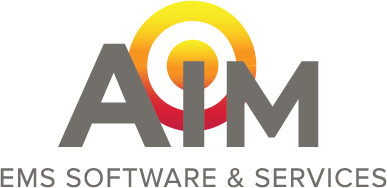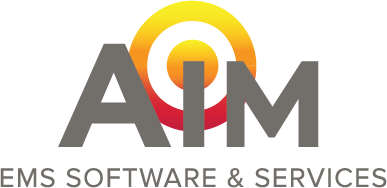In an effort to reduce improper payments, the Centers for Medicare & Medicaid Services (CMS) implemented several initiatives with the goal of identifying and addressing billing errors.
In 2015 The Federal Government estimated that about 12.7 percent of all Medicare Fee-For-Service (FFS) claim payments were improper. In an effort to reduce these improper payments, the Centers for Medicare & Medicaid Services (CMS) implemented several initiatives with the goal of identifying and addressing billing errors. One of these initiatives is a Prepayment Review, where claims submitted with a certain criteria are automatically pulled and reviewed prior to receiving payment.
No big deal if you're doing everything right, right? Wrong! You could have exceptional documentation and above average accuracy rates and still be subject to this type of review simply due to the fact that you fit the audit profile. For ambulance agencies, the profile is typically a service that performs a high volume of non-emergency transports and/or has been flagged in the past for high denial rates.
What you should know about Prepayment Review
Under the authority of the Social Security Act, CMS employs a variety of contractors to process and review claims according to Medicare regulations. These vendors, known as Zone Program Integrity Contractors (ZPICs), perform investigations that are unique and tailored to specific circumstances and occur in situations where there is a high potential for fraud.
There are two types of Prepay review programs: 1) a non-complex review which does not require a clinical review of medical documentation, and 2) a complex review which requires a licensed professional to review requested documentation associated with a claim. Ambulance claims are considered a complex review.
Ambulance providers under Prepay review will receive Additional Documentation Requests (ADRs) for each claim under review. You must submit the requested documents within 45 calendar days or the claim will be denied. Upon receipt, the ZPIC then has an additional 60 days to review the documents and notify the Medicare contractor (MAC) with a determination. The MAC then has another 30 days to make a payment determination. If the claim is denied, providers then have a right to appeal the decision.
You could be looking at anywhere between 3-6 months delay of payment on prepay review claims. Most ambulance services can't withstand a single month of declining reimbursement, so how can you survive months of waiting for payment? Preparation is key.
How To Prepare for a Prepayment Review
There is no avoiding the adverse effects of a Medicare prepay review, but there are ways to minimize the impact.
Start by making sure you have processes in place to effectively manage all of your documents. All supporting documents should be accessible from the bill/claim. Patient Care Reports, Physician Certification Statements, Signature Authorization Forms, Hospital Face Sheets, etc., should all be attached or linked to the claim you submitted. This way, if you receive an ADR, you can turn the request around the same day and avoid extending the time and resources required to track down what's needed.
Implement an internal QA/QI process. QA/QI doesn't just apply to your crews; it's equally as important to perform routine quality checks on your biller(s). Sample biller claims, especially the non-emergency ones, to make sure they have reviewed all of the supporting documents and have determined medical necessity that matches the codes applied.
Develop a communication plan. You should receive a formal, written notice from the ZPIC when you become part of a prepay review. Establish contact with the review professional right away. Ask them if they have a MAC contact that you can work with as well. It's important to try and establish contacts with both the ZPIC and your MAC so that you have a way to follow-up on delays in the process. Be diligent. This is a frustrating process even when you have established contacts - not having them is beyond frustrating.
ADR documents sent to the ZPIC should be certified receipt. Make sure your packages are tracked and that you can prove the ZPIC vendor received them. MACs have been known to deny claims because the requested documents weren't received on a timely basis, when they actually were. Be prepared to prove it.
Complete a cash flow analysis and establish an emergency fund. I know, easier said than done considering the minuscule reimbursement EMS providers already receive. Consider your options. Work with bill collectors to see if they are willing to set up payment schedules during the review. It's important to understand that these reviews can go on for months, depending on the deficiencies uncovered. Prepare for the worse-case scenario.
Measure your successes and failures. Once you have survived a prepay review, it's important to complete a post-mortem and analyze lessons learned so that you are able to improve on processes and hopefully make life easier should you ever find yourself in this situation again.
Well Documented and Repeatable Processes Lead to Success
We are intimately familiar with the impact of a prepay review, having just successfully completed one for an EMS provider we bill for, that does a high volume of non-emergency transports. I say successful, because we were released from review after 3.5 months with a 98% accuracy rate. Had the MAC not included claims that we sent with a GY modifier, just wanting the denial, the accuracy rate would have been even higher. Although we, and our customer, are extremely happy with the end result, it did not come without obstacles, one of which was the MAC still denying claims even after we received a report from the ZPIC that those very same claims were approved.
It's my hope that by sharing our processes, other EMS services can better prepare for this type of review if/when it is requested.
How AIM Online EMS Software and Services Can Help
The workflow of AIM Online Software and Services is specifically designed to address many of the billing challenges associated with Medicare review programs. To learn more about our software and billing service offering, please call 1-800-726-4690.





